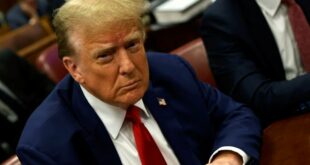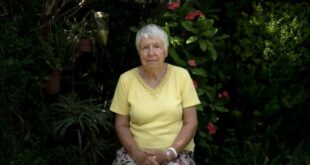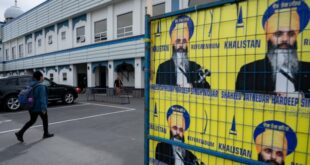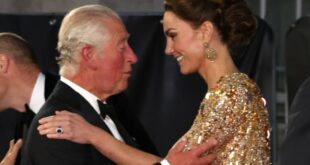Nathan Law is among eight accused of foreign collusion and other charges by Hong Kong


Nathan Law would love to return to a Hong Kong he can speak freely in.
But the accused activist says it might be "decades" before he can come back home.
"I know I'm a target of the Chinese regime, and I'll try to protect myself," he told As It Happens host Nil Köksal.
On Monday, Hong Kong police accused eight overseas-based activists from Hong Kong of national security offences including foreign collusion and incitement to secession.
Police revealed at a press conference that the accused include Law and activists Anna Kwok and Finn Lau, former lawmakers Dennis Kwok and Ted Hui, lawyer and legal scholar Kevin Yam, labour activist Mung Siu Tat and online commentator Yuan Gong-yi.
They are wanted under a national security law that Beijing imposed on the former British colony in 2020, shortly after anti-China protests the previous year. The Hong Kong public is urged not to offer financial support to the accused.
Authorities issued notices and rewards of $1 million HKD (approximately $169,000 Cdn) for information leading to their capture.
The notices accused the activists of asking foreign powers to impose sanctions on Hong Kong and China.
Law is accused of foreign collusion, inciting secession for allegedly calling for sanctions and the city's separation from China.
Law, who's now based in London after leaving Hong Kong in 2020, says those charges are based on peaceful advocacy. He believes he should be free to campaign for the future of his city.
"If attending all those seminars and hearings and meeting politicians are colluding with foreign forces, then most of Hong Kong officials would be in legal troubles by now by applying the same standard," he said.
"The abuse of power is really obvious."
'No rational person would be going back'
Hong Kong authorities acknowledged that the accused can't be arrested if they remain overseas.
Law says he doesn't believe the government can extradite the accused if they stay put.
"I don't think there's any route for the government to extradite us if we stay in the places where there's no extradition, or that where there's stronger law," he said.
China has been accused of surveilling people abroad, but in the U.K., Law is relying on his status as a refugee to gain protection from the government.
He urges people not to comply with or respond to the reward, maintaining that it is legal to engage in political advocacy work as long as it is outside of mainland China.
"If you're thinking about doing so, I think you should really, really be ashamed of yourself because you are assisting a regime that cracks down on our basic human rights," he said.
.jpg?crop=1.777xh:h;*,*&downsize=510px:*510w)
Hong Kong’s national security law three years later
Three years after China introduced a national security law for Hong Kong that cracked down on anti-government protests, the city has changed. CBC’s Saša Petricic found a different atmosphere where dissent remains, but it’s a lot quieter.
Several of the accused activists said they would not cease their Hong Kong advocacy work.
Kevin Yam, who police accused of meeting foreign officials to implement sanctions against Hong Kong officials, judges and prosecutors, said it was his duty to continue advocating.
"It's my duty … to continue to speak out against the crackdown that is going on right now, against the tyranny that is now reigning over the city that was once one of the freest in Asia," he told Reuters.
Yam, a senior fellow with Georgetown University's Center for Asian Law, has lived in Australia since 2021 on a bridging visa.
"I miss Hong Kong but as things stand, no rational person would be going back," he said.
For Law, continuing advocacy work despite the circumstances rings all too true.
"That is what can really help Hong Kong," he said.
The path back home
Law keeps a low profile in his day to day life.
"I've been living a relatively discrete life," he said.
Law hopes that he can return to a home that has a changed political landscape: where people can freely rally against their government and discuss politics without fear.
"I am trying to lay the bricks of the bridge that would lead me home," he said. "And that's what I'm doing."
ABOUT THE AUTHOR
Keena Alwahaidi is a reporter and associate producer for CBC. She's interested in news, arts/culture and human interest stories. Follow her on Twitter at @keenaalwahaidi
With files from Reuters. Interview with Nathan Law produced by Morgan Passi
*****
Credit belongs to : www.cbc.ca
 MaharlikaNews | Canada Leading Online Filipino Newspaper Portal The No. 1 most engaged information website for Filipino – Canadian in Canada. MaharlikaNews.com received almost a quarter a million visitors in 2020.
MaharlikaNews | Canada Leading Online Filipino Newspaper Portal The No. 1 most engaged information website for Filipino – Canadian in Canada. MaharlikaNews.com received almost a quarter a million visitors in 2020.








